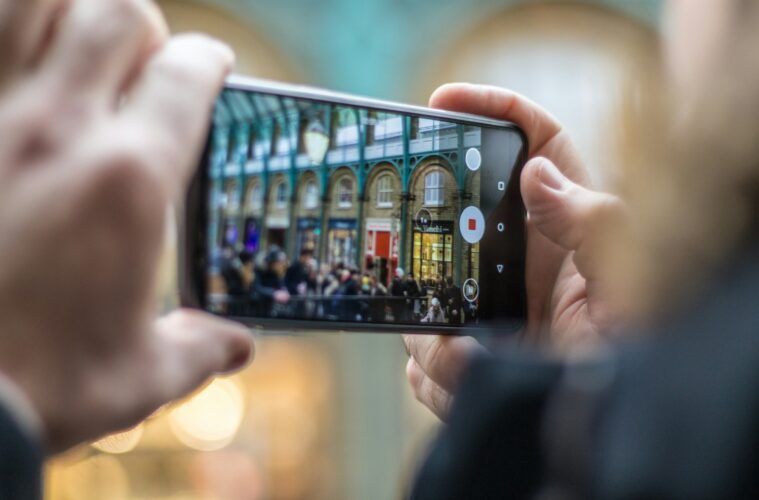Embarking on a road trip across Britain offers a unique opportunity to explore the lush countryside, historic towns, and breathtaking coastlines. However, amidst the excitement, it’s crucial to remember the importance of keeping your mobile phone safe. Your device is not just a tool for navigation and capturing memories; it’s a lifeline in emergencies and a repository of personal information.
Pre-Trip Preparation
Before setting off on your adventure, ensure your phone is ready for the journey ahead. Update your device with the latest software to protect against security vulnerabilities and ensure all critical apps, especially those for navigation and emergency services, are up-to-date. Consider investing in a robust case and screen protector to shield your phone from drops and scratches.
Secure Mounting Solutions
A secure mount is essential for safe navigation while driving. Opt for a high-quality phone holder that attaches firmly to your dashboard or windscreen, reducing the risk of your phone becoming a projectile in the event of a sudden stop. A stable mount not only keeps your device within easy view for navigation but also minimises the temptation to handle the phone while driving, allowing you to stay focused on the road.
Water and Weather Protection
The British weather can be unpredictable, with sudden showers capable of catching even the most seasoned traveller off guard. Protect your phone from water damage by investing in a waterproof case or bag, especially if your road trip includes outdoor activities like hiking or coastal walks. Additionally, avoid leaving your phone exposed to direct sunlight for prolonged periods, as extreme temperatures can damage the battery and internal components.
Anti-Theft Measures
Theft can happen anywhere, and bustling tourist spots are often targeted by opportunists. Keep your phone out of sight when not in use and be wary of leaving it unattended, even in locked vehicles. Use biometric locks and encryption to secure personal data in the unfortunate event your phone is stolen. Enabling tracking software can also aid in the recovery of your device, allowing you to remotely lock or wipe sensitive information.
Battery Life Management
Managing your phone’s battery life is important to staying connected. Invest in a high-quality power bank and a car charger to ensure your device remains charged throughout your journey. Limit the use of battery-intensive apps and features when not necessary, and consider switching to power-saving mode to extend battery life. These measures will help keep your phone operational, ensuring you have access to navigation, communication, and emergency services when needed.
Professional Repairs
If your phone suffers damage during your trip, such as a cracked screen, it’s advisable to have repairs done by professionals. Cracked screen repairs should be done by professionals like Likewize Repair, who have the expertise to restore your device without compromising its functionality. Attempting DIY repairs can lead to further damage or void warranties, so seeking professional assistance is the best course of action.
Safe Charging Practices
When charging your phone on the go, be cautious of using public charging stations, which can be a source of data theft or malware. Use your own cables and adapters, and if possible, plug into a traditional power outlet rather than a USB charging station. Investing in a portable charger can provide a safer and more reliable source of power, reducing the need to rely on potentially compromised public charging points.
Regular Backups
Regularly backing up your phone ensures that your photos, contacts, and other important data are not lost, even if your device is damaged or stolen. Make it a habit to perform backups before your trip and periodically during your journey. Cloud services or a physical computer can be used for backups, providing peace of mind that your precious memories and information are safe.
Mindful Use and Etiquette
Being mindful of how and where you use your phone can significantly contribute to its safety. In crowded places, keep your phone securely in your pocket or bag when not in use, and avoid displaying it prominently in areas where theft is common. Practicing good phone etiquette, such as not leaving your device unattended on tables in public places, not only protects your phone but also respects the privacy and comfort of those around you. Additionally, be aware of local customs and regulations regarding phone use, especially in areas where photography may be restricted or considered disrespectful.
Navigational Tips
Relying on your phone for navigation is common during road trips. To ensure its reliability throughout your journey, download offline maps of the areas you plan to visit in advance. This not only conserves data but also ensures that you have access to directions even in areas with poor signal reception. Regularly update your location settings and apps to avoid unnecessary battery drain and to ensure the most accurate navigational assistance.
The Takeaway
A classic British road trip is an experience filled with discovery and adventure. By taking proactive steps to protect your phone, you can ensure that it serves as a reliable companion, enhancing your journey without becoming a source of stress. From preparation to professional repairs, each measure contributes to a seamless and enjoyable travel experience. Keep these tips in mind, and set off on your road trip with confidence, knowing your device is safeguarded against the unexpected.

